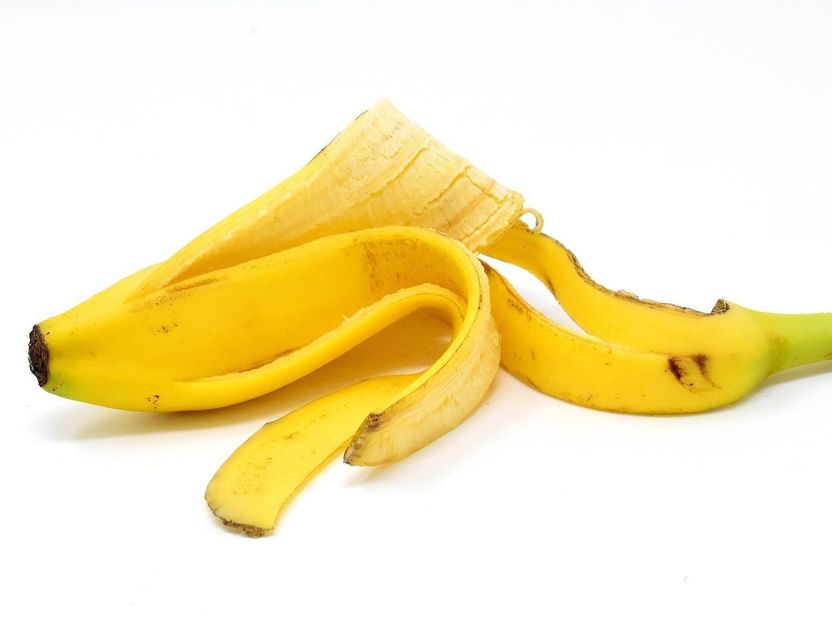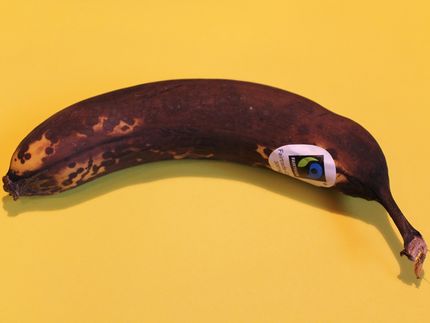Banana peels make sugar cookies better for you
Banana peels aren’t always destined for the trash or compost anymore. They’re making their way onto people’s plates, replacing pork in “pulled peel” sandwiches and getting fried up into “bacon.” And now, researchers reporting in ACS food science & Technology show that incorporating banana peel flour into sugar cookie batter makes the treats more healthful. In taste tests, cookies enriched with some banana peel flour were more satisfying than those baked with wheat flour alone.

Alexas_Fotos / Pixabay
Interest in plant-based diets and reducing food waste is increasing, and people want creative ways to use every part of their vegetables and fruits. Banana peels are one such waste that chefs and home cooks have been experimenting with, but these skins are extremely fibrous, making them unpleasant to eat raw. Recently, scientists found that they can grind the peels into a flour that’s rich in fiber, magnesium, potassium and antioxidant compounds. And when small amounts of wheat flour in breads and cakes were replaced with the new flour, the baked goods were more nutritious and had acceptable flavors. However, similar experiments haven’t been widely done with cookies. So, Faizan Ahmad and colleagues wanted to substitute some of the wheat flour in sugar cookies with banana peel flour, assessing the cookies’ nutritional quality, shelf-stability and consumer acceptance.
To make banana peel flour, the researchers peeled ripe, undamaged bananas and then blanched, dried and ground the skins into a fine powder. They mixed together different amounts of the powder with butter, skimmed milk powder, powdered sugar, vegetable oil and wheat flour, creating five batches of sugar cookies, and baked them.
Increasing the amount of the banana peel flour from 0 to 15% in the batches produced browner and harder products, which could be a result of the increased fiber content from the peels. In addition, cookies with banana peel flour were more healthful, having less fat and protein, higher amounts of phenols and better antioxidant activities than the conventional ones. A trained panel determined that cookies with the smallest substitution of banana peel flour (7.5%) had the best texture and highest overall acceptability compared to the other batches. This batch also kept well for three months at room temperature — it tasted the same as the wheat-only versions after the lengthy storage period. Because cookies can be enriched with some banana peel flour without impacting their consumer acceptance, the researchers say this addition could make these baked goods more nutritious.
The authors acknowledge funding from the Department of Post-Harvest Engineering and Technology, Faculty of Agricultural Sciences, Aligarh Muslim University.
For more of the latest research news, register for our upcoming meeting, ACS Fall 2022. Journalists and public information officers are encouraged to apply for complimentary press registration by completing this form.
The American Chemical Society (ACS) is a nonprofit organization chartered by the U.S. Congress. ACS’ mission is to advance the broader chemistry enterprise and its practitioners for the benefit of Earth and all its people. The Society is a global leader in promoting excellence in science education and providing access to chemistry-related information and research through its multiple research solutions, peer-reviewed journals, scientific conferences, eBooks and weekly news periodical Chemical & Engineering News. ACS journals are among the most cited, most trusted and most read within the scientific literature; however, ACS itself does not conduct chemical research. As a leader in scientific information solutions, its CAS division partners with global innovators to accelerate breakthroughs by curating, connecting and analyzing the world’s scientific knowledge. ACS’ main offices are in Washington, D.C., and Columbus, Ohio.
Original publication
Most read news
Original publication
Organizations
Other news from the department science

Get the food & beverage industry in your inbox
By submitting this form you agree that LUMITOS AG will send you the newsletter(s) selected above by email. Your data will not be passed on to third parties. Your data will be stored and processed in accordance with our data protection regulations. LUMITOS may contact you by email for the purpose of advertising or market and opinion surveys. You can revoke your consent at any time without giving reasons to LUMITOS AG, Ernst-Augustin-Str. 2, 12489 Berlin, Germany or by e-mail at revoke@lumitos.com with effect for the future. In addition, each email contains a link to unsubscribe from the corresponding newsletter.



























































